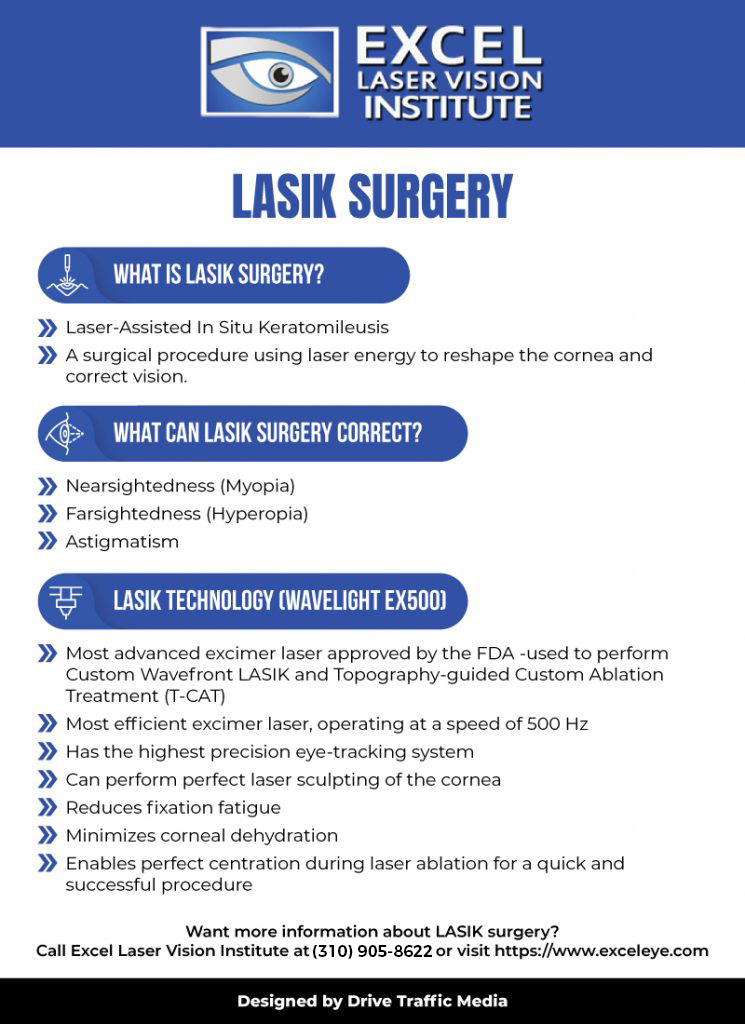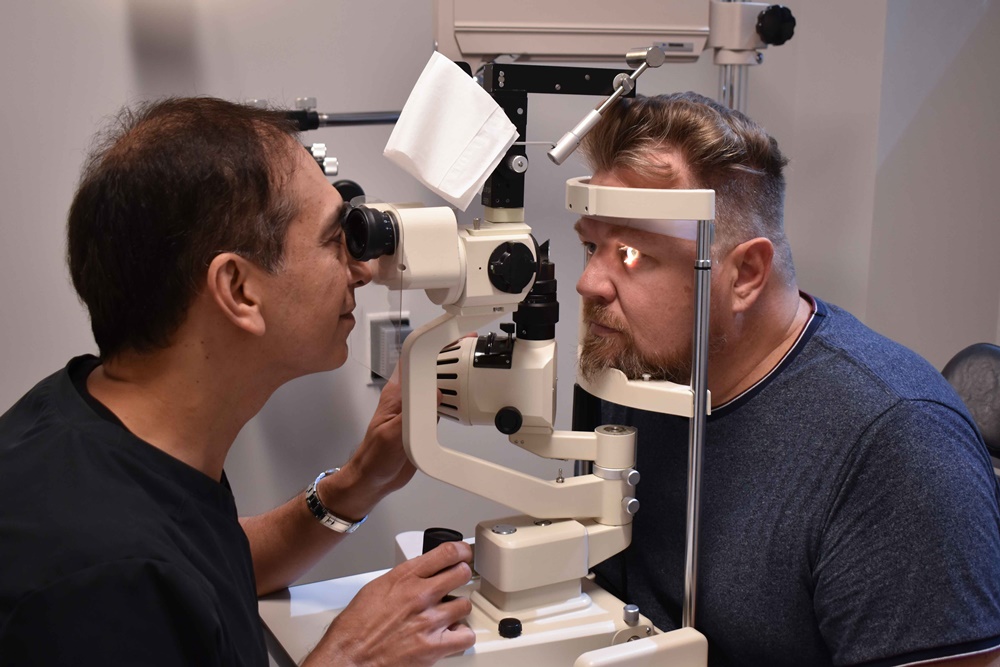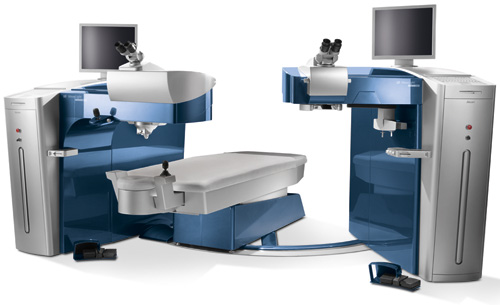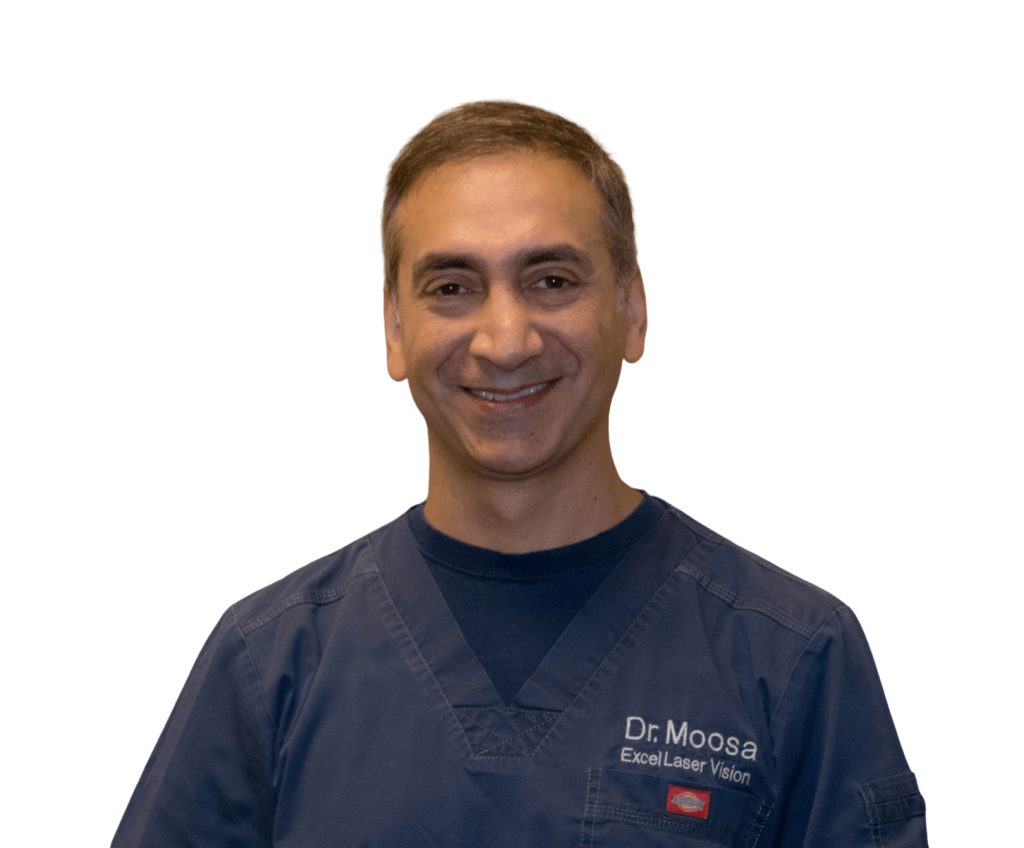Have you wondered about LASIK eye surgery but just couldn’t imagine why some would choose to have the procedure?

Achieve Your Vision Goals through LASIK Surgery
Did you know that LASIK eye surgery has one of the highest patient satisfaction rates of any elective procedure? Proven to treat varying levels of astigmatism, nearsightedness, and farsightedness, LASIK allows many people to regain clarity of sight and freedom from corrective lenses.
When you invest in LASIK, you save money and time. Consider how much money one can spend on corrective lenses each year, from new frames and prescription sunglasses to disposable contacts and contact solutions. Instead of paying these never-ending costs, why not shift your dollars to something more permanent? LASIK is more affordable than ever with one inclusive cost that you can manage through a variety of payment plans.
What is LASIK surgery
Medically referred to as Laser-Assisted In Situ Keratomileusis, LASIK is a surgical procedure using laser energy to reshape the cornea for better eyesight and vision correction. It is an outpatient refractive surgery procedure with a quick recovery. The surgery can be completed within 15 minutes for both eyes with improved vision hours after the surgery. Most patients are able to return to work the very next day.
LASIK Technology
The WaveLight EX500 is the most advanced excimer laser approved by the FDA for performing Custom Wavefront LASIK and Topography-guided Custom Ablation Treatment (T-CAT). It is the most efficient excimer laser, operating at a speed of 500 Hz. With the highest precision eye-tracking system that incorporates iris recognition and a capability to perform Topography-guided LASIK, the WaveLight EX500 can perform perfect laser sculpting of the cornea during LASIK surgery. This technology significantly reduces fixation fatigue, minimizes corneal dehydration, and enables perfect centration during laser ablation for a quick and successful procedure.


Life-Changing Results
The Excel Laser Vision Institute has been successfully performing LASIK procedures on patients with astigmatism, myopia, and hyperopia for over two decades now. Our clinic uses only the most advanced technology and operates under the supervision of Harvard-trained eye surgeon, Dr. Moosa. Imagine what it would be like to wake up each morning and not have to worry about putting on glasses or contacts. Imagine being able to see clearly throughout the day – no matter what activities or hobbies you are enjoying. Your new vision after LASIK surgery will allow you to focus on the things that matter the most.Refractive Errors Treatable by LASIK
Nearsightedness – Myopia: One of the most common vision problems, myopia makes it difficult for people to see objects that are farther away. Vision thus becomes blurred, distorted, and strained at a distance. This is also known as nearsightedness. Historically, LASIK has had great success in correcting this type of vision error. Farsightedness – Hyperopia: People with hyperopia, otherwise known as farsightedness, have trouble seeing objects that are closer to their eyes. Today, faster lasers, larger spot areas, bladeless flap incisions, intraoperative pachymetry, wavefront-optimized, and wavefront-guided techniques have allowed this refractive error to be treatable by LASIK. Astigmatism: People with astigmatism experience blurred vision. This condition can occur when the cornea is an irregular shape or when the lens has a particular curvature that prevents light from focusing properly. Astigmatism is a common occurrence with nearsighted or farsighted vision problems and can be corrected with LASIK surgery.LASIK Eye Surgery – The Step-By-Step Process
The LASIK procedure requires two basic steps in order to correct refractive errors and improve the visual acuity of the patient. The first step involves the creation of a corneal flap, either with a microkeratome blade or with a femtosecond laser. The first instrument is used in traditional LASIK eye surgery while the second and newest technology can be offered to qualified patients via the bladeless LASIK method. For the second step, the LASIK surgeon will utilize an excimer laser to reshape the patient’s cornea according to their vision needs. On the day of the procedure, here’s what you can expect:- Your LASIK surgeon will apply numbing drops to your eye.
- Your eyelids will be gently held in place with a specialized instrument.
- The flap-making tool will be positioned by a qualified surgeon.
- Your LASIK surgeon will complete the surgery while you relax in the chair.
Give Us A Call Today
You can reach The Excel Laser Vision Institute by calling (310) 905-8622. We service areas within California such as Orange County and Los Angeles. To find out more, visit our contact page. We have staff standing by to schedule you a free consultation.Why choose Dr. Moosa for your LASIK surgery?
The Excel Laser Vision Institute team under the supervision of Dr. Moosa has been successfully performing LASIK procedures on patients with astigmatism, nearsightedness, and farsightedness for over two decades now.
Dr. Moosa’s years of experience are a testament to the quality care that he and The Excel Laser Vision Institute team provide. At Excel Laser Vision Institute, we take every patient’s eye care very seriously, and that’s the reason Dr. Moosa uses only the most current and advanced technology in corrective eye surgery.


